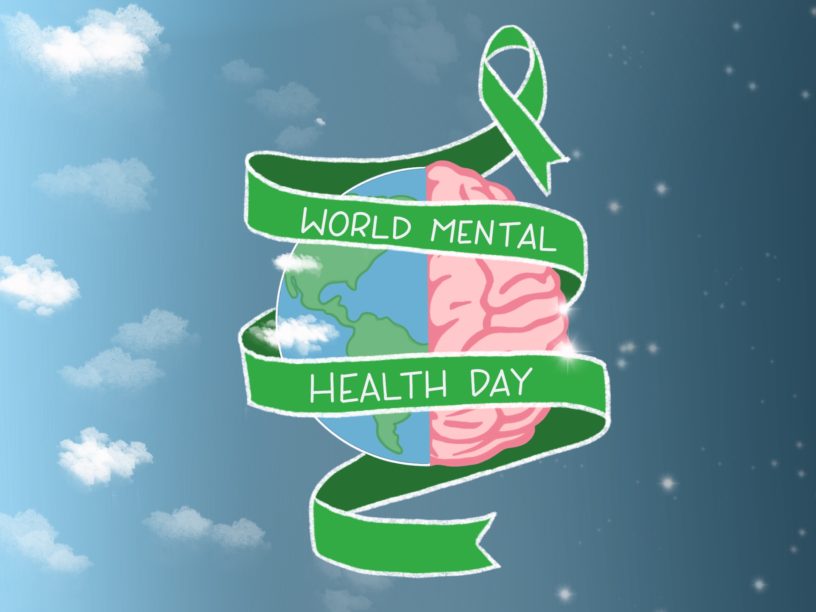By Tendai Zingano
A youth mental health panel hosted at Toronto Metropolitan University (TMU) on Oct. 2 at the Sears Atrium explored new approaches to addressing psychological health affecting youth.
The summit was organized by Linking Hearts, a research project between Canada and China that addresses the mental health needs of students with an emphasis on understanding it from a culturally diverse lens.
A prominent point of discussion from researchers was the need for better mental health support for youth coming from various cultural communities.
Third-year fashion student Tysa Laidlow works as a residence advisor and often refers students to TMU’s mental health resources, but warns them about the difficulties when booking recurring appointments with counsellors.
“I always let them know they have a super long waitlist. So, you can get it for an initial appointment but then to book recurring appointments,” said Laidlow. “If you’re just doing one-on-one counselling, [it] can be really difficult and take a while.”
Post-secondary support services are struggling to meet the growing demands of students, according to the Canadian Alliance of Student Associations (CASA).
In an interview with The Eyeopener, TMU president Mohamed Lachemi said supporting the mental health and well-being of the school community is a “top priority.”
Panelist Josephine Pui-Hing Wong, a nursing professor and research chair in urban health at TMU, said some students who know about resources on campus may feel uncomfortable accessing them for various cultural reasons.
“One of the challenges [with] students is not knowing that there are resources, but it’s really about what makes them feel comfortable to access those resources,” she said.
Wong added many people do not access mental health resources because of their culture and the stigmatization around it.
“I think that the biggest issue is really the low mental health literacy, meaning that people only hear what they think is mental health based on the stereotype that is out there,” she said.
The panellists also agreed on diversifying the workers who provide mental health counselling resources to create an inclusive environment for students of different backgrounds.
Papa Ambodj is a fourth-year TMU environment and urban sustainability student from Senegal. He commented on the cultural barriers keeping him from seeking out resources that are being distributed by the school, due to his previous experience with mental healthcare in his home country.
“In Senegal, they don’t take that into account when you’re stressed or having mental health issues, they will be like ‘Oh it’s nothing.’ They don’t really know how you feel,” he said.
According to the CASA, 75 per cent of post-secondary students in Canada report struggling with their mental health. The Centre for Addiction and Mental Health (CAMH) states that Canada’s youth suicide rate is the third highest in the industrialized world. Between 15 and 25 per cent of Canadian youth experience at least one mental health illness or challenge before the age of 19.
Stephanie Ttofas, a fifth-year chemistry and applied physics student at TMU said although there are resources available on campus, she feels like there is a barrier to entry. She continued, saying that the university should do more to ensure students know about the resources they offer.
“There are really high wait times, that’s what I’ve heard, or students just don’t know about [resources available],” she said.
In an email response to The Eye, the university said TMU “provides students with information about its mental health services and how to access them via several communications on various university platforms at the beginning of the school year, along with regular touch points throughout the year.”
Ttofas works part-time in the Tri-Mentoring Program at TMU, which she believes helps students find their sense of belonging. She added that programs like these are helpful to students so they can find community and learn about the resources available to them.
Tiyondah Fante-Coleman, a panellist, researcher at the Black Health Alliance and PhD candidate in public health at the University of Toronto, discussed her research project “Pathways to Care,” which is a five-year project that centres around improving access to mental healthcare for Black youth.
“It’d be really hard for me to have this conversation about youth mental health, especially Black youth mental health, without talking about the reality of anti-Black racism,” said Fante-Coleman.
She also added that “the mental health care system in Ontario is really broken for Black youth, and the consequences of that are really devastating for youth themselves, their families and their community members.”
Fante-Coleman emphasized the necessity for a restructured system that increases funding for Black-focused organizations and community-based care.
An emailed response from the university said that “students can access immediate support through several sessions of brief therapy following their initial appointment.”
The email also discussed different services offered by the school. “The Counselling Centre also offers a variety of psychotherapy groups tailored to common student concerns throughout the academic year as well as daily on-call crisis appointments.”
“For students who prefer to wait for longer-term care at the Counselling Centre, wait times for ongoing therapy at the CSDC (Centre for Student Development and Counselling) can be up to several months, depending on the time of year,” the response read.












Leave a Reply